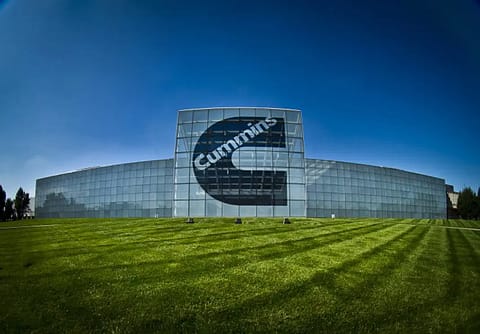Cummins sees India as launch pad for hydrogen engines
Hydrogen-powered trucks and buses could be on roads by 2024

No battery, just an engine and hydrogen instead of traditional fuel. That’s the simple way to describe how Cummins Inc., an American multinational corporation that designs, manufactures, and distributes engines, filtration, and power generation products, is looking to pivot its operations in order to meet its zero emissions targets. The company makes engines largely for the commercial vehicle sector in India. Because of their existing technical centre, large clients such as Tata Motors and their backend manufacturing facilities in the subcontinent, India could be the start of it all for a global transition from making diesel to sustainable engines, says Srikanth Padmanabhan, President Engine Business, Cummins Inc.
These engines will also be sold here in India before anywhere else in the world, says Jonathan White, Executive Director Engine Business, Cummins Inc. This is largely because India is the one country where the opportunity, and the benefits, and the feasibility give the best alignment of all. “Our discussions, whether it's exhibitions, with our partners or truck makers, fuel companies, are aligning, like no other country, you know. In India, we have hydrogen available in India, solar power, grid electricity to make more hydrogen, it's all there.”
It’s well known that one fuel technology won’t be a global fix. It's going to take many combinations and permutations for different countries.
For those very reasons, Jim Nebergall, General Manager Hydrogen Engines, Cummins Inc. says that “India is unique. While we have seen a global transition to hydrogen as a commercial fuel it is also true that almost every major country in the world is now starting to see that electric engines won't work for everything.”
He adds that “Hydrogen is great, because there's no carbon. There's no C - only H and as such you can move the fuel very much like liquid diesel. I can put it on a ship, I can move it around the world, I can put it in pipelines, I can put it on trucks, and I can move fuel, but we can't move electrons very easily, we can't put electrons on a ship. Hence the global recognition for hydrogen, and there are lots of government support subsidies for hydrogen production.”
But doesn't electricity mean zero emissions? “That is a two wheeler perspective in terms of the environment. But even from a use case perspective, a battery electric power train today, can't feasibly do all of the operations that the diesel powertrain does today,” says White. “So for instance, we're in passenger cars. But the public who goes to work every day, goes to the office or on the weekend for short journeys, it makes perfect sense, as it does for some light duty trucks, and as it does for some city bus operations, to return back to the depot and get charged.”
But for commercial vehicles which do the work that needs long distance. “You have to carry pay-load, which means greater power in those batteries for a long haul. So it's not ready for EVs,” White says.
So what is the speed-breaker for hydrogen tech?
Nebergall says “It is not the technology, it's the infrastructure availability, filling stations availability. That is it. We can make the technology, we can have trucks rolling tomorrow, but they can't fill up. So it's the balance of having access to fuel to fuel vehicles on stations, on routes, that growth that needs to be worked on.”
Even so Cummins executives say that if policy and the infra push by the government falls into place they will see hydrogen-powered units on the road in India by 2024 or 2025.
Why would India lead for Cummins on Hydrogen engines?
(INR CR)
“We're seeing similar levels of interest globally, for hydrogen engines for leading markets such as the U.S., Europe, China, but we will have the manufacturing capability here,” White says.” Also this will be an export region for our hydrogen 6.7 litre engine. But we are seeing interest in different displacements, different sized engines globally.
The point is that there's a lot of interest in this as a zero carbon technology, because it can meet emission requirements today, as opposed to having to overcome limitations that other technologies have.
White adds that hydrogen is going to be the new commercial fuel. “Because you can actually produce power in vehicles with two technologies, fuel cells in hydrogen engines, then turn that fuel into power.” The one benefit of the hydrogen engine is that it is based on current technology. “And it's relatively low cost, and it leverages an existing chassis and all of the automotive industry's components from transmissions to radiators… everything you need to make a vehicle, it's already there. It's there to be built today at scale with diesel. All those components still exist in this hydrogen engine.” The cost will be lower than engine in general. “There's no mechanical barrier, there's no engineering obstruction. We're doing it today. We've got engines running.”